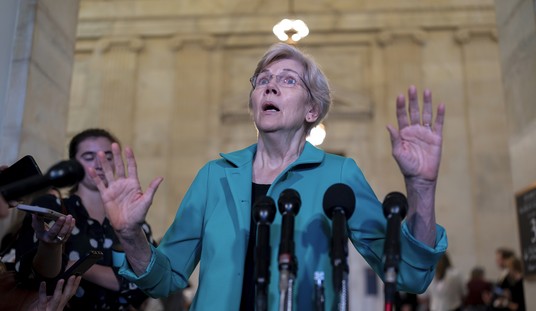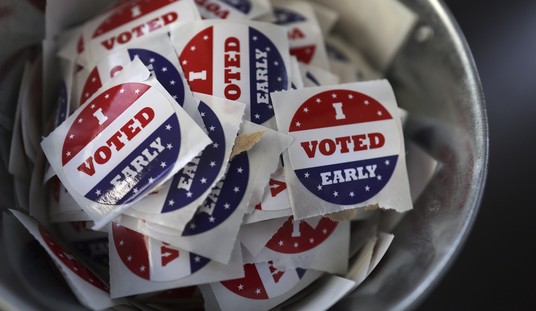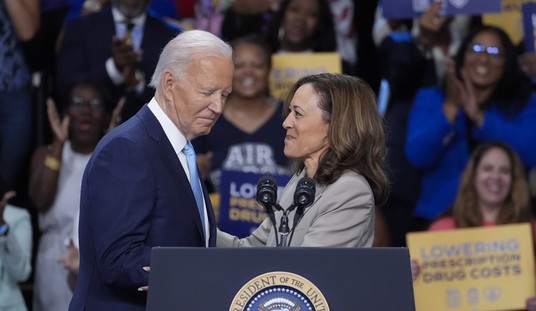The GOP celebrations in the immediate aftermath of the November 5 election were epic. Republicans had kept their majority in the House, taken the Senate, and won the presidency.
Democrats were despondent and inconsolable.
"That was a cataclysm,” wrote Sen. Chris Murphy (D-N.J.) on X. “Electoral map wipeout,” he added.
The GOP's electoral count was the biggest victory for the party since 1988. Murphy concluded: “We are beyond small fixes.” Donald Trump made inroads into dark-blue urban centers. He destroyed the Democrats' hold on Hispanics and loosened the stranglehold of the party on blacks.
“It should come as no great surprise that a Democratic Party which has abandoned working class people would find that the working class has abandoned them,” Sen. Bernie Sanders (I-Vt.) said in a statement shortly after the initial results had been counted.
All of the above is true. The day after the election, there were approximately 11 million votes uncounted. In the end, those uncounted votes cost the Republicans one House seat in California. Otherwise, Trump's lead over Harris slipped from 4.5 million to 1.5 million, making 2024 the tightest presidential race in 50 years. Trump will fall just short of an outright majority with 49.9% of the vote.
Republicans hold the second-slimmest House majority in history. That's going to make Speaker Mike Johnson's (R-La.) job even harder.
Yasmin Radjy, the executive director of the Democratic organizing group Swing Left, told The Atlantic's Russel Berman that all is not doom and gloom for the party.
“If the Democratic brand was fundamentally broken and needed to be thrown out, this election would have been a complete blowout. And it was not. It was way too close,” Radjy told Berman.
Another Democrat told Berman, “We lost an election. We didn’t lose the country.”
This, also, is true. We didn't wake up the morning after the election as a different nation. We're still a 50-50 country with the logjam that is the American electorate becoming just slightly less crammed together. There are openings that one party or the other could exploit and create a new, governing majority if they're able to define and annunciate the hopes and dreams of the people with clarity and conviction.
In some areas, the election looked like a red wave; compared with four years ago, the presidential vote swung to the right by about 10 points in some of the most populous blue states, such as New York, California, and New Jersey. But down-ballot races offer a solid case for Democratic optimism. The party label appeared to be far less of an albatross for Democratic congressional candidates than it was in strong Republican years such as 2010 and 2014. In the Senate this year, although Republicans flipped four seats, Democratic candidates prevailed in four battleground states that Kamala Harris lost to Trump. And according to the Cook Political Report’s David Wasserman, Democrats could have retaken the House majority with only 7,309 more votes across three congressional districts.
The gains Republicans made with working-class voters appear solid and lasting. The gains Democrats made with college-educated professionals also appear to be permanent.
What makes this so much worse for Democrats is that the working class — especially white, non-college-educated voters — used to be the backbone of their party.
In the November election, The Public Religion Research Institute (PRRI) reported that "white voters without a college degree (66%) were 22 percentage points more likely than white voters with a college degree (44%) to support Trump." That, alone, calls for a five-alarm reassessment by the Democrats.
They're only fooling themselves if they believe all they need is to slap a bandage over their toxic beliefs on race and gender to reclaim power.
Republicans almost won the Hispanic vote (45%-53%), an incredible turn of events when you consider that Barack Obama won 71% of the Hispanic vote in 2012.
And Democrats had routinely won more than 95% of the black vote in presidential elections, only won 81% in 2024.
These stats are not one-offs or anomalies. The complacency with the Democrats' historic voting blocs was the Republicans' secret weapon in this election. They took blacks, Hispanics, and the white working-class vote largely for granted and it cost them.
They aren't likely to get all of them back either.










